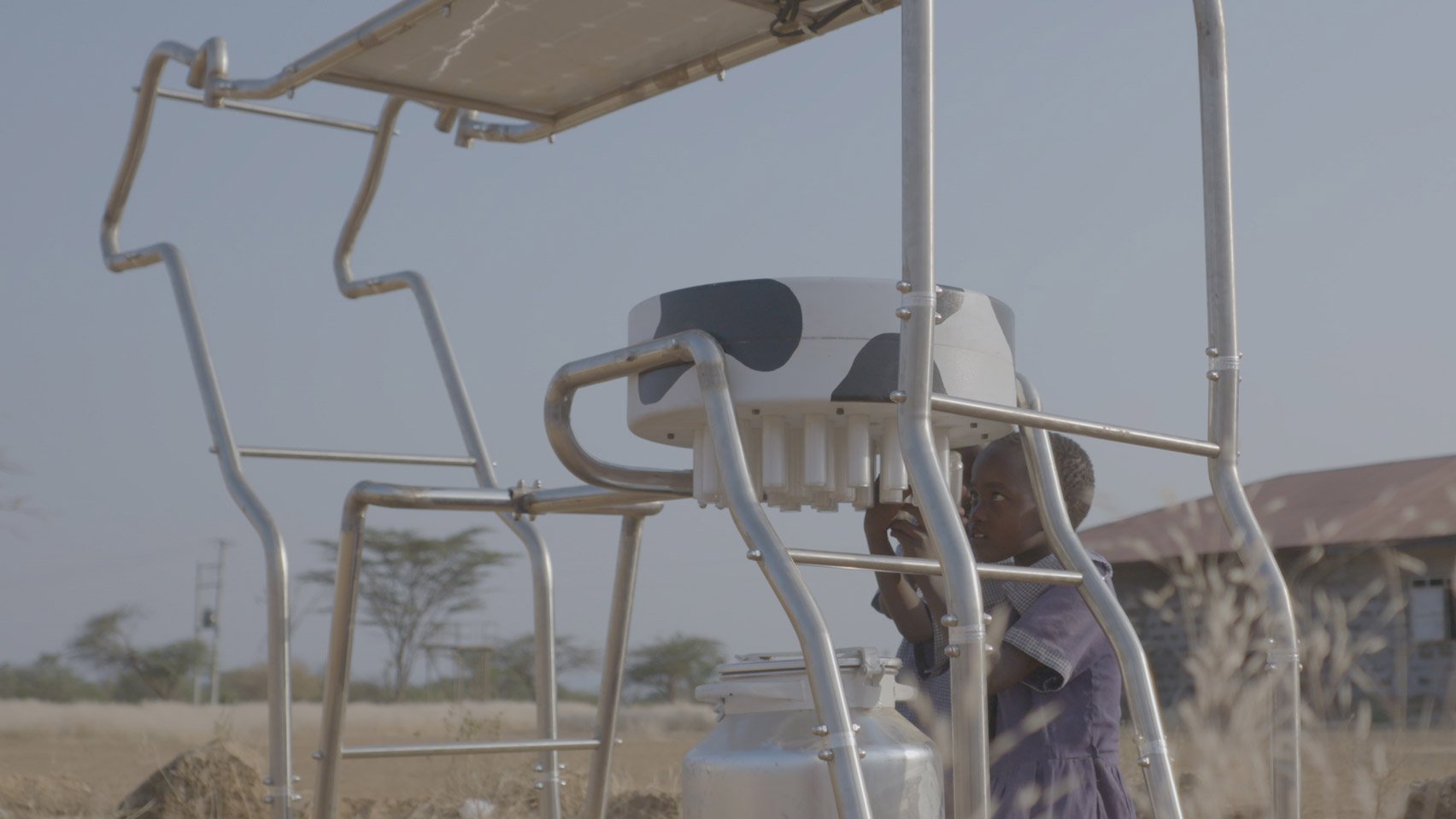An udder-like battery charging system and cosmetics made from byproducts of the wine industry were among the product designs exhibited at Seoul Design 2024.
All six projects were featured at the Design Launching Fair, which forms the heart of the annual Seoul Design festival at the Zaha Hadid-designed Dongdaemun Design Plaza.
Now in its sixth edition, the Design Launching Fair aims to encourage innovation by emerging local brands and designers and to help “spread K-design globally”.
“The K-culture wave is sweeping across the world, but the design area is not gaining the spotlight, so that’s sort of a regret from our perspective,” said the event’s CEO Kang-heu Chai.
“The mayor of Seoul, Oh Se-hoon, really wants to grow our design area, and wants to make this a festival where as many people as possible can participate,” he told Dezeen.
Other featured products at the Design Launching Fair include a self-sterilising bin made of graphene and a collection of recycled ceramic products.
These were all developed in line with the overarching festival theme at Seoul Design 2024 called Imagine Tomorrow.
However, according to the curator Hyosoon Jung, they also reflect the wider ambition of young designers in Seoul who are dedicated to developing eco-friendly and socially responsible products.
“The new generation, their trend is reusing or designing in a socially meaningful way,” Jung told Dezeen.
“Those kinds of concepts guide the young generations, that’s why those are the kind of products we can see today,” she said.
Read on for six innovative designs showcased at the event:
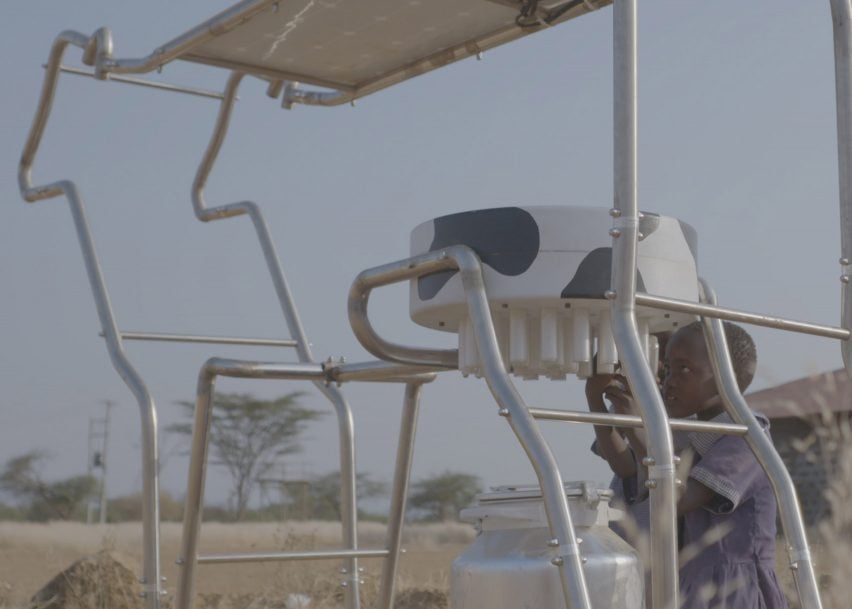
Solar Cow by Yolk
Solar Cow is an udder-like charging system developed by Korean electronics brand Yolk to simultaneously boost children’s access to education and energy in developing countries.
Currently being piloted in schools across Africa, the energy points allow children to plug in and charge up their portable batteries – named Power Milk – throughout the day. When the day is over, the batteries are charged and ready to be taken home for use as power banks.
The solar-powered points are deliberately slow charging so that parents allow children to spend the day in class before heading home. The aim is to encourage more low-income families in developing countries to send their children to school.
As part of its Seoul Design 2024 exhibit, Yolk launched a coffee brand called Ayantu, which sells Ethiopian beans to help raise funds and awareness of the project.
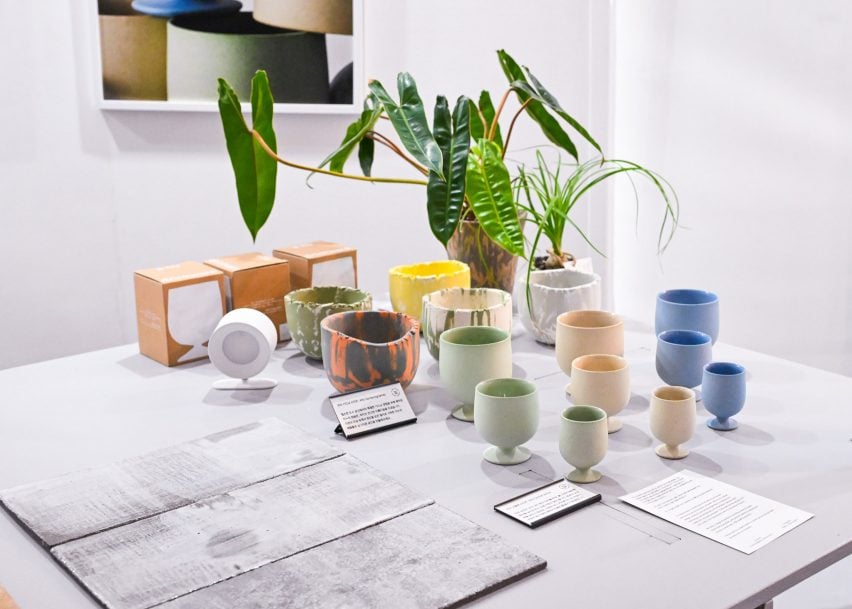
Reporcelain by Anu
Seoul-based craft brand Anu exhibited a collection of tactile ceramic products made from ceramic waste, salvaged from landfill after being sent by local manufacturers.
It focuses specifically on what it describes as discarded “iron ceramics” – pottery fired at high temperatures to maximise their hardness and fire resistance, which makes it difficult to reuse.
The aim was to demonstrate the value and potential of this material by upcycling it into usable products and surface materials. Among its exhibits were a selection of textured tiles, plant pots and cassolettes.
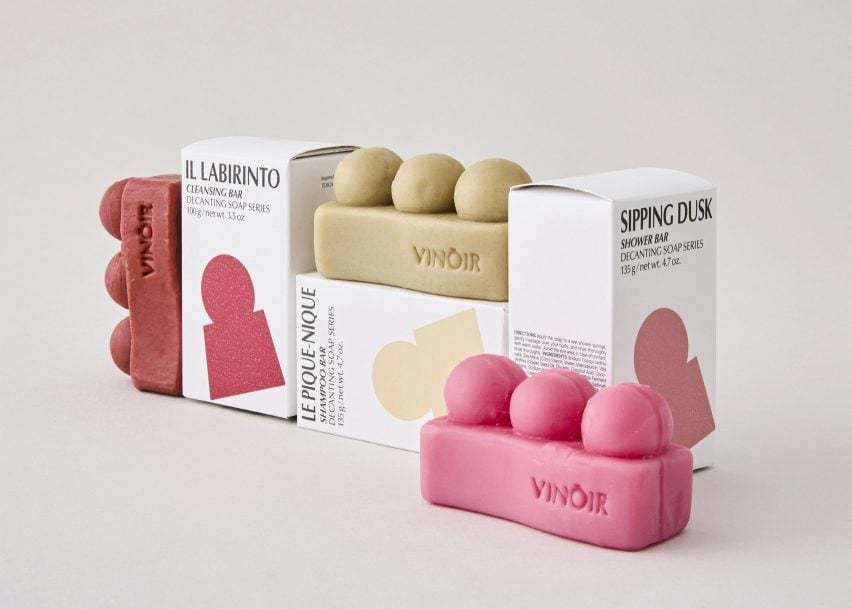
Vinoir cosmetics
Handcreams and cleansing bars made from wine pomace were among the products that Vinoir showed at Seoul Design 2024.
Pomace is a pulpy byproduct of the wine-pressing process, made of grape skin, seeds and stems. It is often used as animal feed or fertiliser, but according to Vinoir, it is enriched with antioxidants that are ideally suited to beauty products.
All the products on show were made with pomace sourced via the brand’s Green Decanting Winery project, for which it has partnered with wineries across six countries including France and Italy.
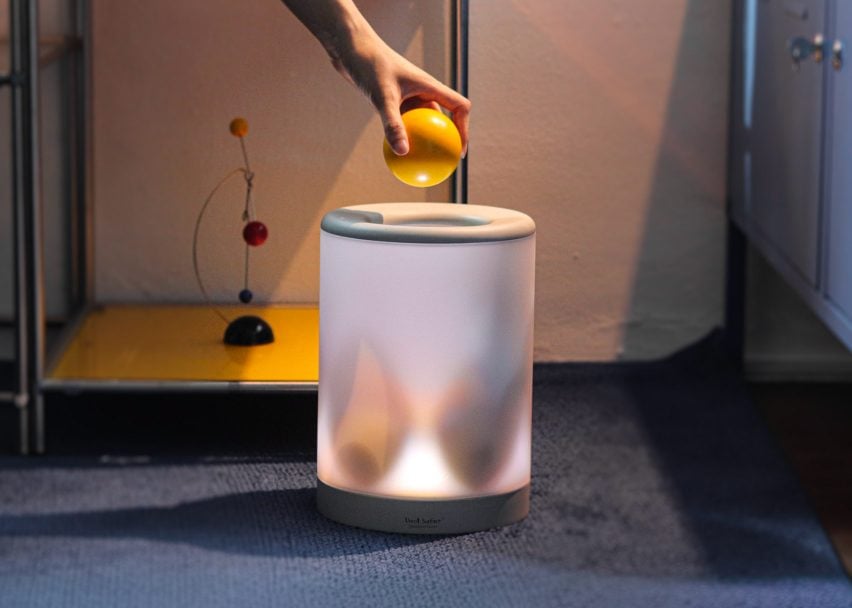
Dumpi by Seoul City University and Lab M Zero
Dumpi is a prototype for a cylindrical bin with translucent edges, which has a light source at its base to sterilise it.
Designed by students from Seoul City University, it was made from graphene oxide-based material made by material manufacturer Lab M Zero. According to the company, the material is environmentally friendly and exhibits antibacterial properties when exposed to light.
It forms part of a wider collection by the students called Rizzero, which comprises a series of design-led tools made from graphene oxide that the students said aim to make “the cleaning process special and enjoyable”.
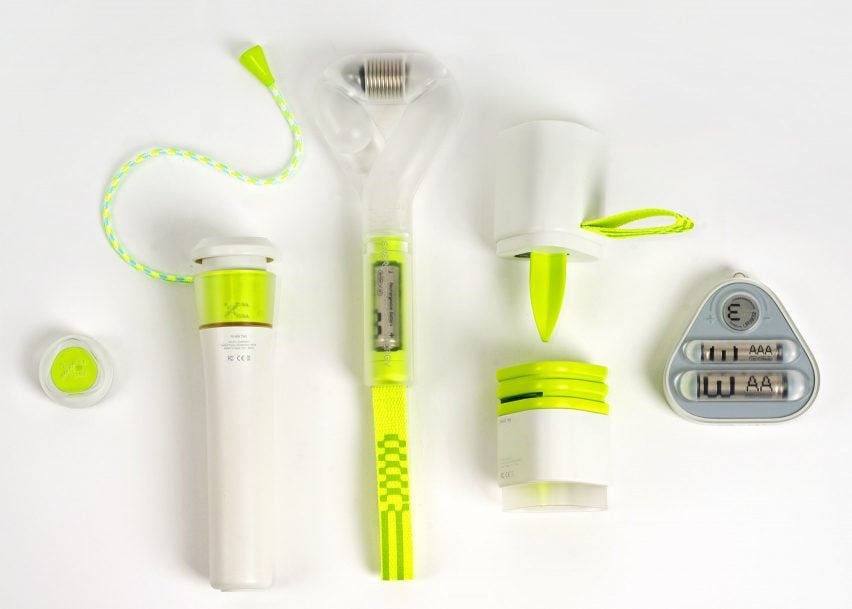
Fever Time
Another series of prototypes on the list is Fever Time, a collection of energy generators that allow festival goers to harvest electricity to charge their battery packs.
Named Shake, Spin and Vibrate, they are each modelled on the movements of people when dancing at a music festival to ensure ease of use and encourage uptake.
Shake produces energy by being shaken like pom-pom, while Spin is modelled on the process of flags being waved around and Vibrate evokes a tent peg and, according to the team, relies on “vibrational energy” in the ground at a festival.
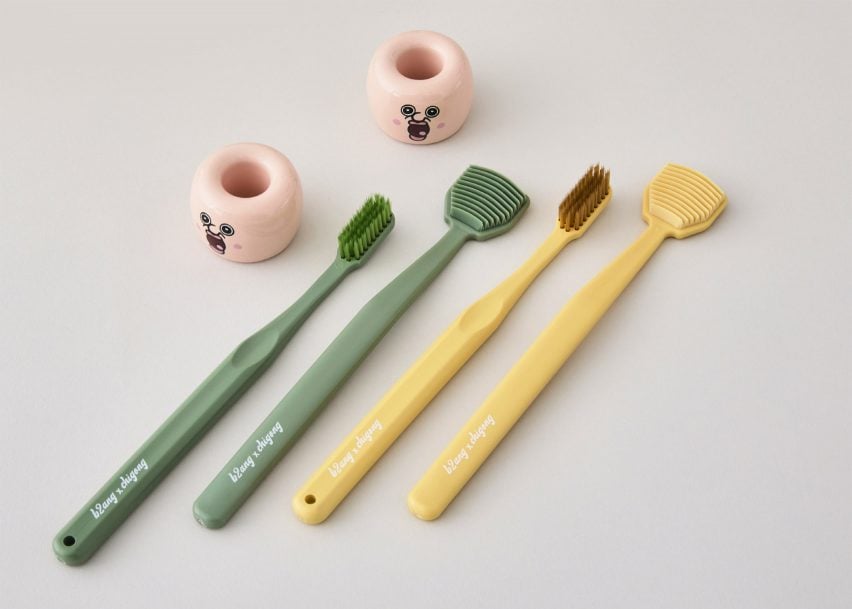
Chigong oral care
Corn starch and sugarcane were used to create the toothbrush and tongue cleaner in this oral-care collection exhibited by Chigong – an emerging lifestyle brand “putting trendy designs and environmental messages into simple everyday products”.
The minimalist products were each made from a biodegradable and compostable bioplastic called polylactic acid (PLA), which can be extracted from renewable sources such as corn starch and sugarcane.
The project was designed to appeal to those who prefer to clean their teeth with a durable plastic brush, instead of materials such as bamboo, while reducing reliance on carbon-intensive, non-degradable plastics.
The imagery is courtesy of Seoul Design 2024.
Seoul Design 2024 took place from 17 to 27 October 2024. See Dezeen Events Guide for an up-to-date list of architecture and design events taking place around the world.

